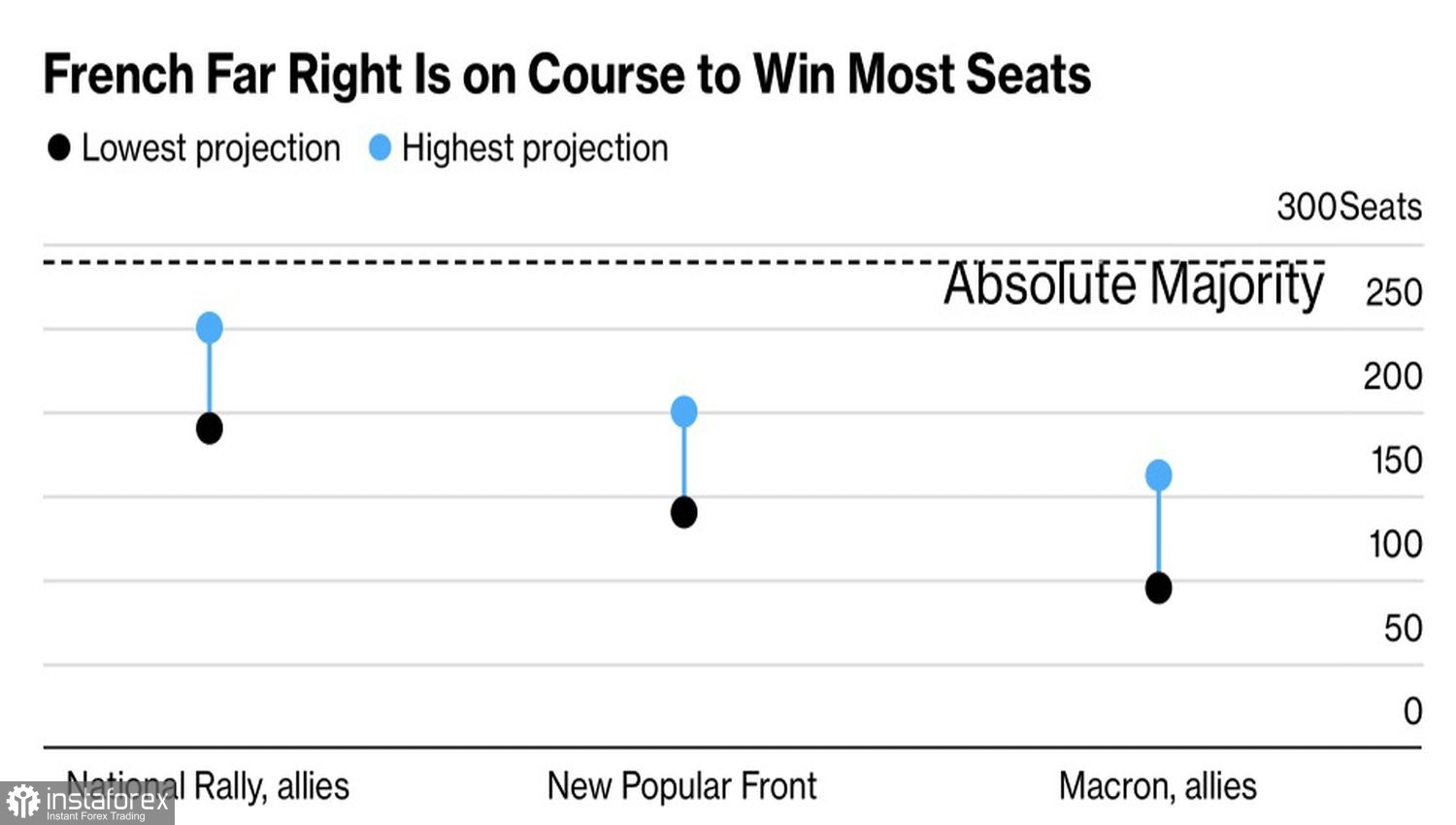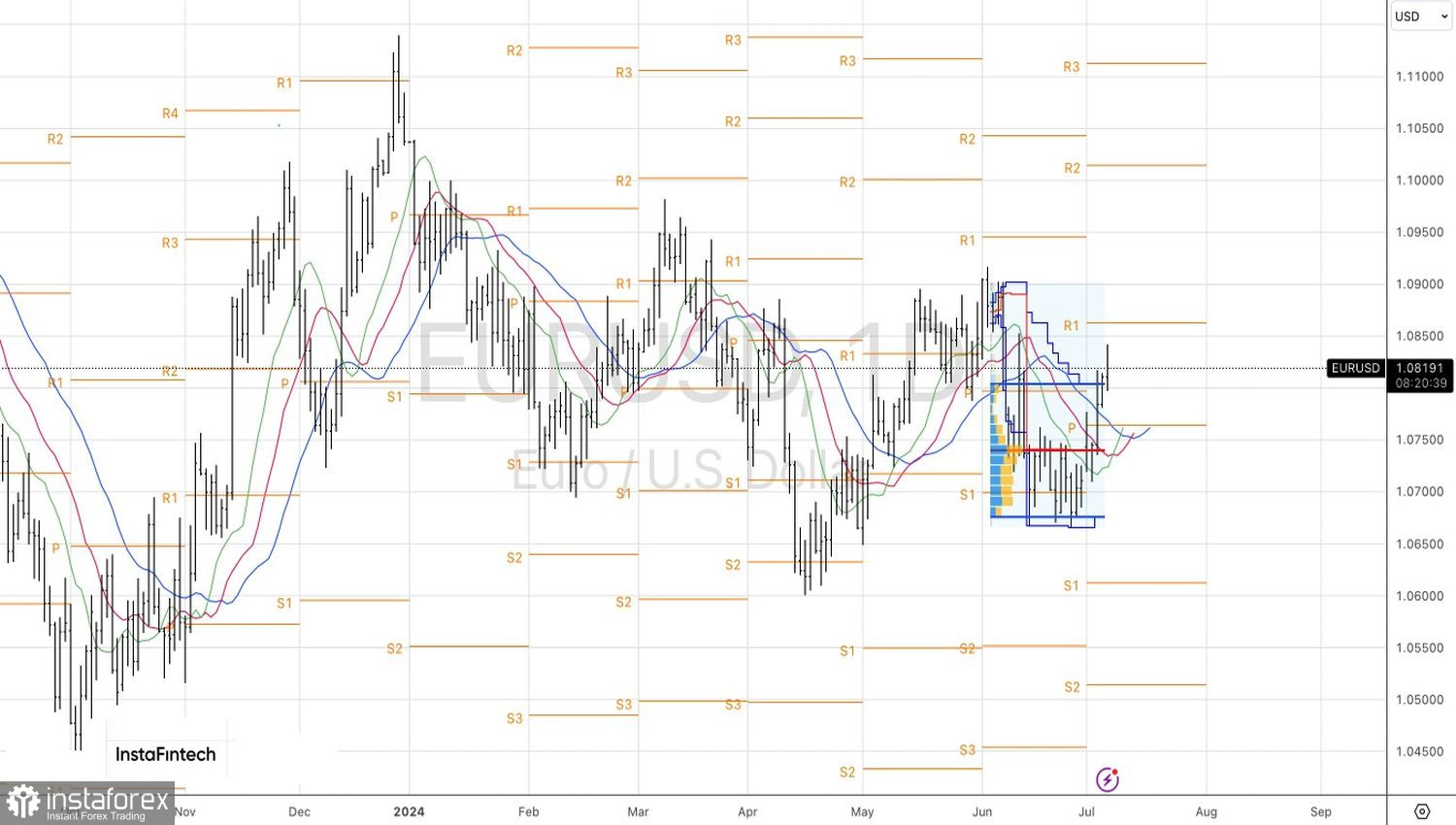Non-farm payroll employment in the US rose by 206,000 in May, surpassing Bloomberg experts' consensus forecast of +190,000. However, unemployment unexpectedly increased from 4% to 4.1%, and average wages showed the slowest growth in three years at 3.9%. This data did not cause a significant reaction in EUR/USD, but the trend of these indicators brings the Fed closer to lowering the federal funds rate. This is bad news for the US dollar.
The minutes of the last FOMC meeting noted that high immigration creates imbalances in the labor market. Employment is rising even amid increasing unemployment. For the Fed, the latter is more important. Once unemployment rises, it can gain momentum and become uncontrollable. In this regard, June's statistics increased the chances of a federal funds rate cut in September from 74% to 78%.
Against this backdrop, the US dollar risks entering a wave of sell-offs, especially against the oversold euro. The political drama in France pushed EUR/USD quotes to 9-week lows, but investors are beginning to realize that the situation may not be as dire as it seems.
Expected Positions of Parties in the French Parliament

According to the latest polls, the National Rally is expected to secure between 190 and 250 seats in the National Assembly, falling short of the absolute majority of 289. A fragmented parliament will prevent the right-wing from dictating their will, including in relations with the European Union. Significant increases in government spending, budget deficits, and national debt will likely be off the table. Similarly, Frexit and parity in EUR/USD seem unlikely. Isn't that a reason to start buying euros?
Of course, the US dollar still has a trump card in the form of Donald Trump's likely victory in the US presidential election. The Republican's protectionist policies and additional fiscal stimuli and debt would push EUR/USD quotes down. However, investors will likely start factoring in the Trump effect on the main currency pair in the second half of August to early September. For now, the euro can rise on the Fed's monetary easing expectations.

FOMC officials have yet to signal a rate cut. For example, New York Fed President John Williams noted that the central bank has seen progress in reducing inflation to approximately 2.5% but still needs to reach the 2% target. Neutral rhetoric is slowing EUR/USD, but facts are facts.
Technically, on the daily chart of the main currency pair, both targets for the previously mentioned long positions at 1.0800 and 1.0835 have been met. As long as EUR/USD remains above the upper boundary of the fair value range of 1.0670-1.0800, preference should be given to purchases towards 1.0900 and 1.0945.





















